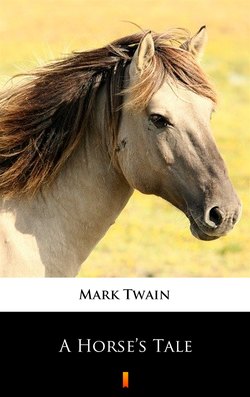Читать книгу A Horse’s Tale - Mark Twain - Страница 6
ОглавлениеII. LETTER FROM ROUEN–TO GENERAL ALISON
My dear Brother-in-Law,–Please let me write again in Spanish, I cannot trust my English, and I am aware, from what your brother used to say, that army officers educated at the Military Academy of the United States are taught our tongue. It is as I told you in my other letter: both my poor sister and her husband, when they found they could not recover, expressed the wish that you should have their little Catherine–as knowing that you would presently be retired from the army–rather than that she should remain with me, who am broken in health, or go to your mother in California, whose health is also frail.
You do not know the child, therefore I must tell you something about her. You will not be ashamed of her looks, for she is a copy in little of her beautiful mother–and it is that Andalusian beauty which is not surpassable, even in your country. She has her mother’s charm and grace and good heart and sense of justice, and she has her father’s vivacity and cheerfulness and pluck and spirit of enterprise, with the affectionate disposition and sincerity of both parents.
My sister pined for her Spanish home all these years of exile; she was always talking of Spain to the child, and tending and nourishing the love of Spain in the little thing’s heart as a precious flower; and she died happy in the knowledge that the fruitage of her patriotic labors was as rich as even she could desire.
Cathy is a sufficiently good little scholar, for her nine years; her mother taught her Spanish herself, and kept it always fresh upon her ear and her tongue by hardly ever speaking with her in any other tongue; her father was her English teacher, and talked with her in that language almost exclusively; French has been her everyday speech for more than seven years among her playmates here; she has a good working use of governess–German and Italian. It is true that there is always a faint foreign fragrance about her speech, no matter what language she is talking, but it is only just noticeable, nothing more, and is rather a charm than a mar, I think. In the ordinary child-studies Cathy is neither before nor behind the average child of nine, I should say. But I can say this for her: in love for her friends and in high-mindedness and good-heartedness she has not many equals, and in my opinion no superiors. And I beg of you, let her have her way with the dumb animals–they are her worship. It is an inheritance from her mother. She knows but little of cruelties and oppressions–keep them from her sight if you can. She would flare up at them and make trouble, in her small but quite decided and resolute way; for she has a character of her own, and lacks neither promptness nor initiative. Sometimes her judgment is at fault, but I think her intentions are always right. Once when she was a little creature of three or four years she suddenly brought her tiny foot down upon the floor in an apparent outbreak of indignation, then fetched it a backward wipe, and stooped down to examine the result. Her mother said:
“Why, what is it, child? What has stirred you so?”
“Mamma, the big ant was trying to kill the little one.”
“And so you protected the little one.”
“Yes, manure, because he had no friend, and I wouldn’t let the big one kill him.”
“But you have killed them both.”
This is a free sample. Please purchase full version of the book to continue.
